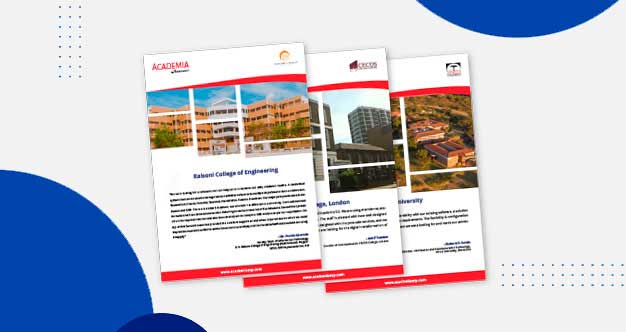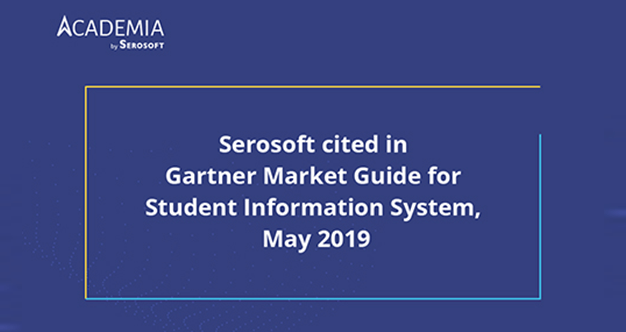Leveraging College Management Systems to Boost Accessibility and Affordability in Higher Education
Introduction:
College access and affordability are critical factors determining a student’s ability to pursue higher education. College/Campus Management Systems (CMS) is important in streamlining institutional processes, improving communication, and reducing costs, ultimately contributing to enhanced college access and affordability for students. In this blog post, we will explore how College Management Systems can positively impact college access and affordability and discuss how these systems can be leveraged to benefit students and institutions alike.
- Streamlining Administrative Processes:
One of the primary benefits of college management systems is their ability to automate and streamline various administrative processes. Institutions can lower their operational costs by reducing the time and resources required for tasks such as admissions, enrollment, scheduling, and financial aid management. These savings can be passed on to students through reduced fees or increased financial aid, making college more affordable and accessible.
- Enhancing Communication and Collaboration:
College management systems facilitate seamless communication and collaboration between students, faculty, and administrators. This improved communication can lead to more efficient decision-making and better utilization of resources. For example, administrators can easily share information about available scholarships, grants, and financial aid opportunities with students, enabling them to make more informed decisions about their education. This transparency can increase college access by helping students identify and pursue financial resources that may have otherwise gone unnoticed.
- Facilitating Data-Driven Decision Making:
Data-driven decision-making is essential for higher education institutions seeking to improve access and affordability. College management systems collect and analyze data on various aspects of institutional operations, such as enrollment trends, student demographics, and financial aid distribution. Administrators can use this data to identify areas for improvement and implement targeted strategies to increase access and affordability. For instance, institutions can use this data to allocate financial aid resources better, prioritize underrepresented student populations, or develop new scholarship programs.
- Supporting Online and Distance Learning:
The rise of online and distance learning has significantly increased access to higher education, particularly for students facing geographic, financial, or time constraints. College management systems can support these alternative learning models by providing a platform for course delivery, student engagement, and assessment. By making online and distance learning more accessible and efficient, institutions can reach a wider range of students and provide more affordable educational options.
- Reducing Student Expenses:
College management systems can also help institutions reduce student expenses, further contributing to college affordability. By offering digital resources and materials, institutions can minimize or eliminate the need for costly textbooks and other physical resources. Some college management systems also include features that help students track their expenses and financial aid, enabling them to make more informed financial decisions and manage their budgets effectively.
- Enhancing Retention and Graduation Rates:
College access and affordability are not just about enrolling students; they also involve ensuring that students persist and graduate on time. College management systems can support student success by offering tools for academic advising, early warning systems, and personalized learning plans. By identifying at-risk students early and providing targeted interventions, institutions can improve retention and graduation rates, ultimately making higher education more accessible and affordable in the long run.
- Encouraging Community Engagement and Partnerships:
College management systems can facilitate collaboration between higher education institutions and external partners, such as businesses, nonprofit organizations, and local governments. These partnerships can create additional resources and opportunities for students, such as internships, scholarships, and community-based learning experiences. By fostering these connections, institutions can enhance college access and affordability while contributing to their communities overall economic and social well-being.
Conclusion:
College/Campus Management Systems have the potential to significantly improve college access and affordability through streamlined administrative processes, enhanced communication, data-driven decision-making, and support for online and distance learning. By leveraging the capabilities of these systems, higher education institutions can create more inclusive and cost-effective learning environments for a diverse range of students.
As colleges and universities continue to navigate the challenges of access and affordability, adopting and effectively implementing a comprehensive college management system can provide a strategic advantage. By optimizing administrative tasks, fostering better communication among stakeholders, harnessing data to inform decision-making, and expanding online and distance learning opportunities, institutions can make higher education more attainable and affordable for students from all walks of life.
In the long run, this commitment to accessibility and affordability can contribute to a more inclusive, diverse, and well-educated society. By creating equal opportunities for all students to succeed, regardless of their background or financial circumstances, higher education institutions can help empower individuals and strengthen communities. As a result, leveraging college management systems is not just a smart strategy for higher education institutions – it is also an investment in the future of our society.
Related Posts:
 Higher Ed Plans
Higher Ed Plans K12 Plans
K12 Plans










